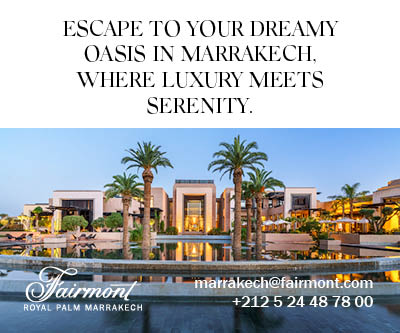Personal account: hope for improved inclusion for young LGBT people in Monaco

While 80% of Monegasques are in favour of voluntary pregnancy terminations, according to the latest consultation by the National Council, the issue of rights for the LGBTQI+ community is still a sensitive one in the Principality.
Adriano, 25, hid part of himself while growing up. He now fully embraces his sexual orientation, and talks about the challenges he has faced to date and his hopes for a more inclusive Monegasque society.
Through his testimony, and that of Mathilde Le Clerc, Chair of the Education, Youth and Sport Committee, emerges the picture of a Principality that is slowly changing and becoming more open.
An – almost – typical childhood
Born and raised in the Principality, Adriano describes his childhood as that of a ‘typical’ Monegasque child. However, from a very early age, his not-so-typical behaviour and preferences attracted derogatory comments. “From nursery school onwards, I was closer to one male friend than the others. I didn’t yet understand what they meant, but remarks about the way I was were already being made,” he says.
The comments intensified at middle school. “I was called names like ‘faggot’ or ‘fairy’ because I walked a certain way. I was also teased about my weight before I lost a lot of it at high school.”
He rues the lack of awareness-raising in schools. “At school, we only talk about heterosexuality, even in sex education classes. Homosexual relationships aren’t mentioned.”
A late but freeing coming out
Adriano says he became aware of his sexual orientation at the age of 12, but he didn’t come out of the closet until he was 21. “My father, who was very loyal to Italian values, saw this as an “abnormal” phase. I kept it all inside, to project the image of the perfect son,” he explains.
It was during a trip to South Africa that Adriano decided to stop hiding. “I learned to accept who I was through my travels and meditation. It became obvious I had to be myself,” he says.
Remaining obstacles in Monaco
Now fully himself, Adriano, like many other people from the LGBT community, faces many challenges in Monaco. “Even though many people accept us today, I often get dirty looks. The people who are accepting tend to be foreigners, in fact my circle of friends is international.”
The Principality is very safe, but that doesn’t prevent discrimination, particularly in recruitment. During his job search, as well as passive discrimination, Adriano claims to have been on the receiving end of derogatory comments as soon as he joined a temp agency: “No, that won’t be possible, the earrings are a no. What you do in the privacy of your home is your own business, but you can’t turn up like that.”
A slowly changing Principality
Despite these observations, Adriano recognises there are signs of progress. The recently created Monegasque non-profit Mon’Arc en Ciel provides support and visibility for the LGBT community. Adriano is now a member, convinced that local initiatives are essential if attitudes are to change: “This was sorely lacking in the Principality.”
He also welcomed Barclays Bank having organised the Monaco Pride . “It’s a first step towards breaking down stereotypes,” he says.
The National Council, set to tackle bullying
Mathilde Le Clerc, Chair of the National Council’s Education, Youth and Sport Committee, acknowledges some shortcomings when it comes to raising awareness of bullying towards LGBT people. “Apart from the ‘Inclusive School Week’, which could be extended to cover this topic, I am not aware of any specific measures relating to LGBT issues. However, my colleagues Béatrice Fresko-Rolfo and Christine Pasquier-Ciulla and I will certainly raise them with the Director of National Education, Youth and Sport.”

The Chair of the Committee on Education, Youth and Sport also stressed the role that elected representatives can play in dealing with these issues. “Since last year, I have personally stressed to the Government the importance of further involving the educational community to tackle the harmful impact of bullying, and the need to do more than just regretting it exists, or completely underestimating its extent.”
Respect and acceptance must apply to all differences, whether between able-bodied and disabled people, or between different cultural or linguistic backgrounds
Mathilde Le Clerc believes that the rejection of certain people illustrates the need to improve the climate in schools, making it inclusive and respectful. “I think that this ‘climate of respect for all students’ goes beyond the basic notion of orientation or gender. Respect and acceptance must apply to all differences, whether between able-bodied and disabled people, or between different cultural or linguistic backgrounds.”
Mathilde Le Clerc took pains to manage expectations, however. “We are observing what is happening in Monaco and elsewhere, and we will be the first to consider a bill if the situation requires it. For the moment, there are no specific plans on LGBT discrimination, but we remain vigilant.”
Arguments for inclusion
Adriano believes there should be greater visibility and education in future. His dream is to open an inclusive bar-restaurant, a “safe place” as he calls it, where “discrimination is left at the door and everyone can be themselves.”
He is also hoping for concrete legislative changes, including recognition of civil wedding ceremonies for same-sex couples and stronger legal protection against discrimination.
Mathilde Le Clerc shares this vision of a more inclusive society, while calling for a collective approach. “We’re dealing with a societal issue that must concern everyone, first and foremost parents and all those in contact with young people, but also the world of employment, the media – in short, each and every one of us.”











